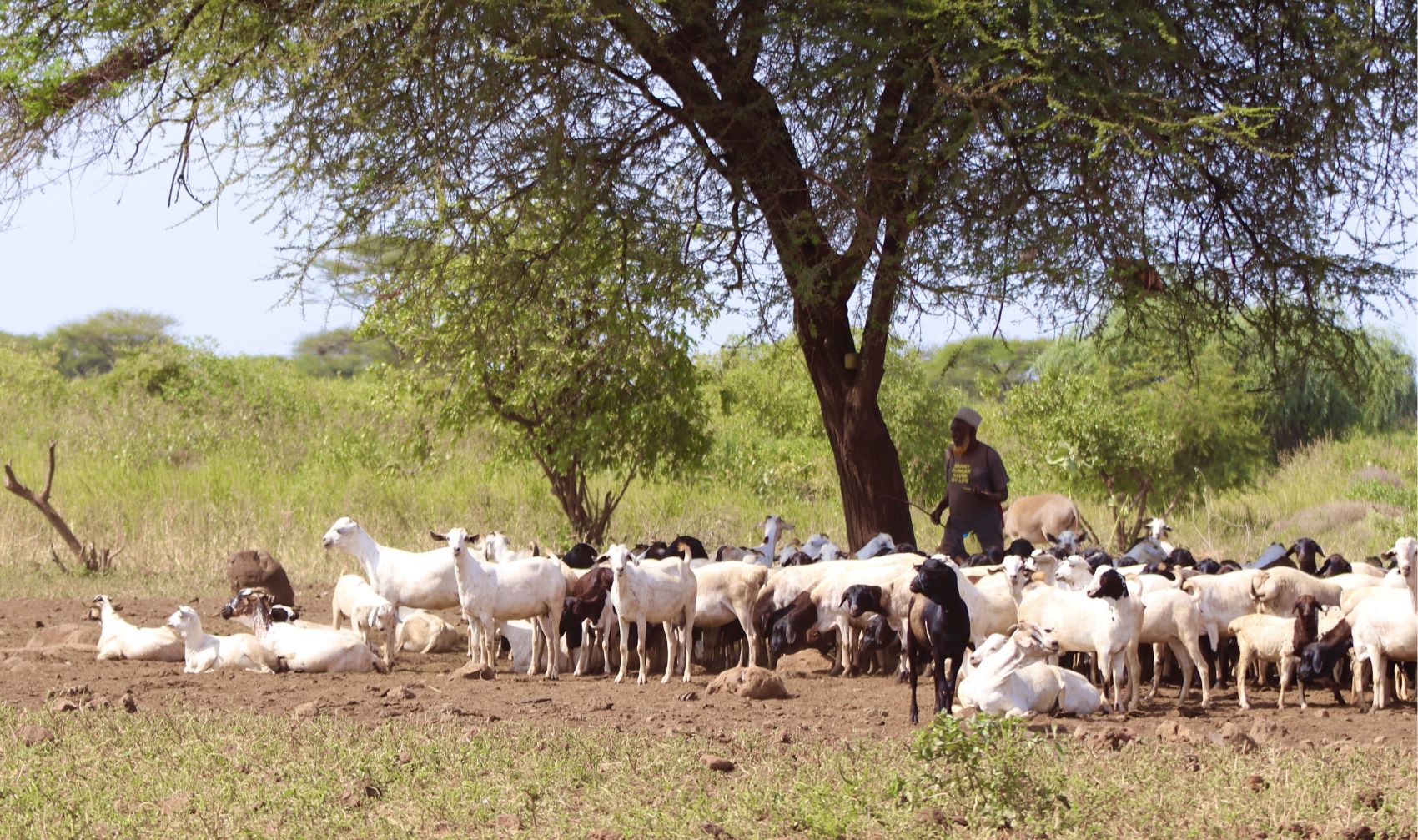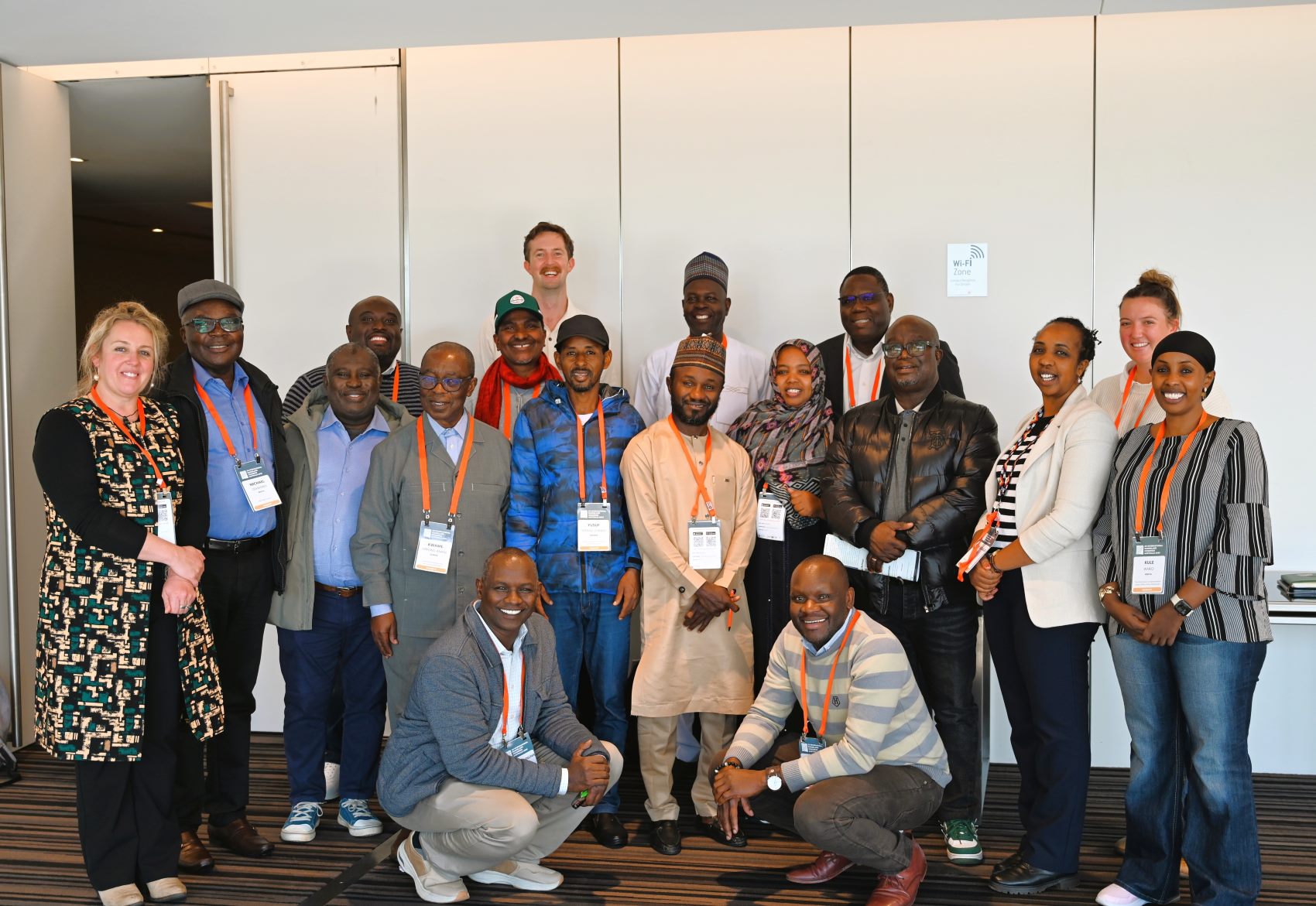Amid a climate crisis that continues to threaten food security across Africa, experts and pastoralists are calling for a rethink in planning and implementing development in pastoral regions of eastern and western Africa.
This call to action emerged from a recent workshop convened under the Africa-Australia Partnership for Climate Responsive Agriculture (AAPCRA), a flagship initiative of ACIAR and DFAT, valued at A$76.4 million.
At the heart of the workshop was a bold proposition: pastoralism should no longer be treated as a vulnerable and outdated livelihood system.
It must be recognised as the most viable livelihood system in the drylands, providing vital nutritional requirements for the people. Pastoralists themselves are often a network of 'high-reliability professionals', who consistently navigate uncertainty with skill, flexibility and indigenous knowledge.
'Pastoralists are not just surviving climate shocks; they are managing risks, mobilising support networks, and stabilising food systems under the harshest conditions,' said Dr Rahma Hassan, a female Researcher at the Centre for Research and Development in Drylands (CRDD) in Kenya. 'This is resilience in action.'

Partnership for climate-smart solutions
Launched by Australia's Minister for Foreign Affairs, Senator Penny Wong, at the 2023 Commonwealth Heads of Government Meeting, AAPCRA is a six-year partnership aimed at enhancing access to climate-smart innovations for African smallholders while strengthening institutions and policy engagement across the continent.
'Through innovative partnerships and Australian know-how, we are helping build a future where communities are fed, economies are stronger, and the environment is protected. It is about securing a better, more resilient future for all,' said Minister Wong at the time.
In its inaugural year, AAPCRA is investing in bilateral research and capacity development in countries such as Ghana, Kenya, Nigeria, Senegal and Tanzania, where pastoral systems are facing increasing pressures from land grabs, resource conflicts, food insecurity and climate shocks.
These challenges, when viewed through a narrow lens, tend to encourage solutions based on current norms and biases.
To help shift perspectives, AAPCRA-sponsored 15 delegates from these countries to attend the XII International Rangeland Congress in Adelaide, in June. The congress became a platform for meaningful discussions to generate new ideas, build momentum and restore a sense of hope around pastoralism.

Unpacking the pastoral paradox
Despite contributing over 90% of the meat and 50% of the milk consumed in eastern Africa, and outperforming ranches in productivity, pastoralism has historically been dismissed by policymakers as inefficient, conflict-prone and environmentally destructive. Yet evidence shows otherwise.
'Data from Ethiopia, Kenya, Botswana and Zimbabwe reveal that mobile pastoralism is consistently more productive per hectare than ranching,' said Dr Hussein Tadicha Wario, Executive Director of the Centre for Research and Development in Drylands (CRDD) and Project Leader for this ACIAR-funded project focusing on rangeland 'The real issue is not viability, but visibility.'
With pastoral systems lacking recognition in policies and legal frameworks, the rhetoric of 'underutilised' or 'empty' land continues, undermining pastoralists' rights and access to grazing lands. Competition for land by other large investment projects across Africa, particularly in drylands, have further jeopardised pastoralist communities.
From the green energy project such as Lake Turkana Wind Power Project in Kenya to land acquisitions in Ghana and Nigeria, pastoral communities have often been displaced without prior and informed consent.
While the shift to green energy production is vital in the context of the climate crisis, hope for a just transition was one of the discussions at the AAPCRA-supported workshop adjacent to the Rangeland Congress.
Reimagining development approaches
Discussions at the AAPCRA workshop focused on the importance of acknowledging variability in pastoral areas rather than attempting to control it, and redesigning frameworks around existing sustainable practices and principles. There was a strong emphasis on the value of leaders having lived experiences of the realities on the ground.
- The workshop identified urgent actions to shift the pastoralist paradigm.
- Recognise pastoralism as critical infrastructure in national strategies.
- Invest in grazing reserves, fodder banks, water infrastructure and early warning systems.
- Protect land rights and mobility corridors.
- Promote the capacity building of youth and women in livestock management.
- Use appropriate terminology and inclusive language to bridge divides between farmers and pastoralists.
- Leverage the strategic influence and operational plans of regional organisations and programs.
A collective responsibility
Ongoing initiatives show there is momentum to rethink development. These include Nigeria's Livestock Transformation Plan, Ghana's Cattle Ranching and Transhumance Committee and regional projects by the West and Central African Council for Agricultural Research and Development (CORAF), the Forum for Agricultural Research in Africa and Association for Strengthening Agricultural Research in Eastern and Central Africa.
However, as the AAPCRA initiative highlights, real impact hinges on placing pastoral communities at the centre of work.
'Trust is the baseline,' said Dr Steven Crimp, Research Director at ACIAR. 'The knowledge is there, the networks exist - we just need to listen, support and scale what already works. And ACIAR, in partnership with CRDD, are already doing that.'
The AAPCRA workshop served as a stepping stone to enhance the potential of Africa's drylands by leveraging Australia's expertise and experiences in similar environments through collaborative research and knowledge exchange visits across both continents and beyond.
Click here to learn more about ACIAR's initiatives in Africa and participation at the XII International Rangeland Congress.






